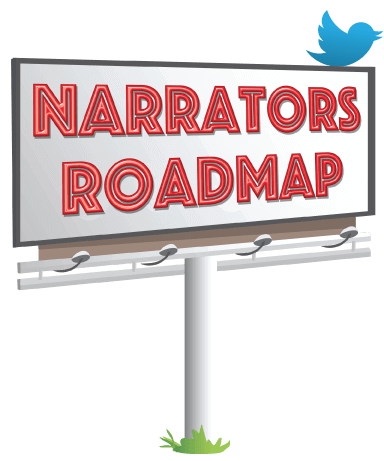Establishing and maintaining a relationship is the key to gaining work with any producer or publisher.
You’ll want to research people and companies before you contact them. It’s important to learn and follow each producer’s preferences for communications.
If you have a 6-month or yearly membership, you’ll find I’ve done much of the research for you! I created company listings loaded with producer names and lots of valuable info like producer interviews in the exclusive Casting Directory.
This article offers some additional tips and links to help you discover publishers and producers so you can make and build connections.
Please know that most producers will want to see a body of work before they are willing to take a chance on you. Refer to this article and learn about how narrators earn or abuse the trust of publishers.
AudioFile Magazine is the premier publication of the audiobook industry and lists publisher info in the Advertiser Directory found at the back of each issue.
You can search by company or service (check Independent Producers) in AudioFile’s Talent & Industry Guide.
Look at a genre you’re interested in on Audible.com and make a list of the publisher names producing work in that genre.
Once you know the company that produces the kind of audiobooks you want to narrate, you can search for producer names in LinkedIn or the APA directory below.
- The Google Site: search in this Tuesday Tip shows how to search LinkedIn for a name.
- Once you have a name with the company, this Tuesday Tip has 3 tactics for discovering a person’s email address.
If you’re a member of the Audio Publishers Association (APA), you can search the member database for producers’ email addresses. As with the AudioFile guide, most publishers don’t list a particular casting person and may not even designate someone as a producer. That’s another reason why researching LinkedIn can be so helpful.
APA members will find several “Ask a Casting Director” webcasts under Resources, then Webinars after logging in to the APA site. These videos enable you to learn all sorts of good stuff straight from the casting directors, including how and when to contact them. Many casting people give their email address.
You can follow my Twitter list of audiobook publishers. The link and instructions are in this article.
Industry Resources
I subscribe to a number of sites and newsletters to stay current about publishers and the publishing industry. I have found the following 4 resources to be particularly useful:
This British magazine covers British publishing news. They also host conferences and award programs. I don’t subscribe to the magazine, but I do receive their daily newsletter.
This site contains the catalogs for 100s of publishers. You can see what they are planning to publish in the coming months, as well as their backlist books. I sometimes have written to an audio publisher to ask for consideration on a title I saw in their catalog that didn’t have a narrator’s name attached to it.
In 2015, I created a free account on Edelweiss as an independent/freelancer. Over the years, I have requested — and often received — publisher Digital Review Copies (DRCs).
My profile includes my social media links and states:
Greetings! I’m an audiobook narrator, producer, publisher, blogger, and a leading curator of information about the audiobook industry.
I use Edelweiss to learn about books that may be made into audiobooks. I request DRCs to determine whether to negotiate for the book’s audio rights or aid my auditions for the audiobooks of these titles. As a result, I do not write reviews of the books I receive through the DRC program.
You can see my audiobooks on my site or on Audible at the links below.
https://www.KarenCommins.com/all-titles
https://www.Audible.com/KarenCommins
I receive a number of their newsletters:
- Promotions
- Reviewer & Media
- US Weekly Greeting
- Community newsletters in Bio/Memoir and Editors’ Picks. You can select the newsletters you want based on your interests.
At $25/month, this site is invaluable for the information it offers every day about publishing news, deals and dealmakers.
You can sign up here for a free version of the daily Publishers Lunch newsletter. A paid subscription gives you the Deluxe Lunch newsletter and a daily email about deals. You can search their articles and database of deals and deal makers.
This long-standing magazine covers the international publishing industry. You may be able to read this magazine through your library.
You can sign up for a number of newsletters.
Not only do I benefit from the current news, but I can search PW’s archives, which extend back to 1872. I use the archives when creating the artwork, writing blurbs, and finding critics’ comments for my Public Domain books.
Other resources on this topic:
- On a related topic, you may want to research indie authors. Site members will find lots of info about prospecting for authors in the Create Your Own Path Video Course.
- Narrator Hannibal Hills has written this article which explains many tactics for finding an author’s contact info.
- In addition, I’ve written a couple of articles about finding rights holders:








